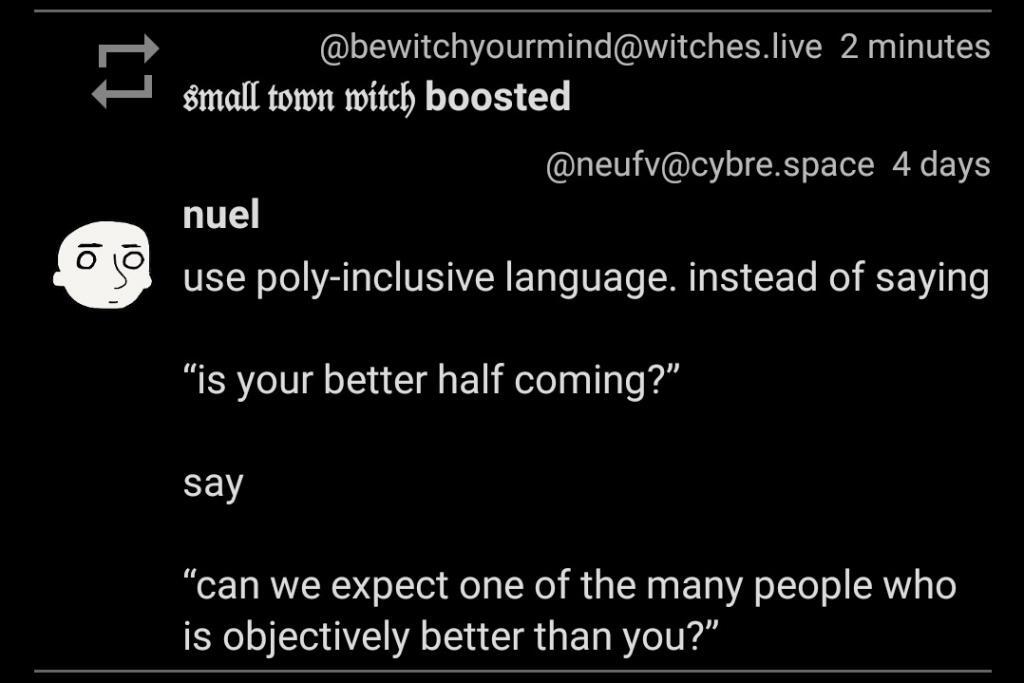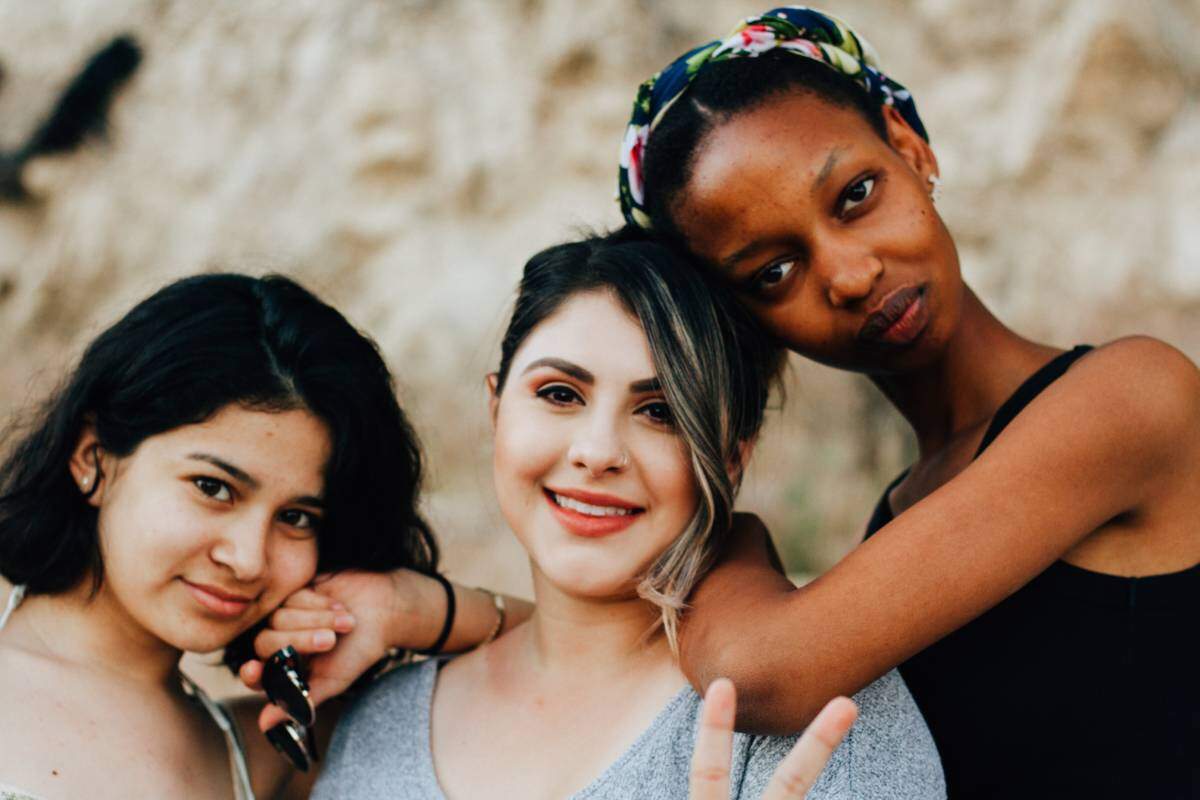I posted this screengrab from Mastodon to a Facebook group “Polyamory Memes”.

I thought it was funny and snarky, and thought others would think so as well. And apparently a couple hundred odd people agreed (or at least enough to hit a positive reaction button).
What happened in the comments… well, that bothered me.
In the comments, several people (predominately two apparently white guys) started arguing over whether one should say “poly” or “polyam”.
The argument, in a nutshell, is that supposedly people from polynesia (which is a region, not a country) use the term to identify themselves, and polyamorous people shouldn’t take it away. If interested, you can read more background and arguments in this Reddit thread or this blog post.
A thing I found interesting: The one person in the comment thread who identified themselves as being from that region said they’d never heard a native call themselves “poly”; their experience was that people would identify what country or island they were from.
Me? I found the whole thread – the whole argument – ridiculous.
Not because it’s “PC culture run amok” or anything like that.
I found it ridiculous both because of how seriously people were taking it – and because of the idea that there’s only one definition of a word in English.
English is not a centrally controlled language. Unlike some tongues – French comes to mind – where there really is an official record of what does and does not “count”, English is a merry free-for-all. Our “official” records – dictionaries – only describe how the language is being used, NOT how it should be used. Add in the many, many different languages that English has borrowed and stolen words (and parts of words) from, and you’ll end up with lots of words that sound alike – or even spelled alike – but have different origins and meanings.
These false cognates can be quite fascinating. For an appropriate example:
RAGE AND OUTRAGE
Etymologically speaking, outrage is not a type of rage. While rage traces back to the Latin for rabies, outrage comes from Old French ultrage, where the ult- is that of ultra, meaning beyond and the -age is the suffix found in plumage, steerage, usage, etc. Outrage is “ultra-age” or beyond-ness. It originally referred to a serious transgression or insult.
https://theweek.com/articles/541713/15-pairs-words-that-seem-etymologically-related-but-arent
Especially when you’re dealing with slang, abbreviations, or acronyms, things can get even more dicey. For example, I was rather surprised when one friend reacted badly to my mention of BLM. When I specified that I meant Black Lives Matter, they apologized; they’re a horse person and hates how the Bureau of Land Management deals with wild horses.
To further complicate things, most people don’t use words precisely when talking about relationships. Do other types of non-monogamy count as polyamory? What about if they’re somewhere inbetween? What counts?
(To be clear, this sort of thing could apply just as easily to monogamous couples. Every relationship is different; our society just tends to pretend that monogamy is only done one way.)
So I approach this whole poly/polyam controversy with all this roiling about in my head, and I think… well, that I’m going to try to say and write polyam. Because maybe that will make someone’s life a little easier, and it’s not hard for me. But when I mess up and write poly – or when I see someone else say or write poly – I’m not going to jump all over them either.
Why? Because when I look through several online dictionaries (Dictionary.com, Merriam-Webster, Cambridge, MacMillian, Oxford) there is no mention of people from the islands that make up Polynesia. The only place I can find a reference (other than blog posts from people citing an unlinked Tumblr posts) is several definitions down in the Urban Dictionary… and that isn’t exactly my idea of a reliable reference.
Again, not that dictionaries dictate how English is supposed to be used – but they do document how it is used.
And before anyone talks about colonization, white privilege, and so on – well, maybe it’d be better to refer to folks by their actual heritage – e.g. Samoan, Tongan, etc – rather than lumping them all into one big amorphous group with a label imposed by a white man.
So I’ll use polyam – especially while writing.
But I’m not about to correct someone else for saying poly instead.
Featured Photo by Omar Lopez on Unsplash

This Article was mentioned on stevesaus.com